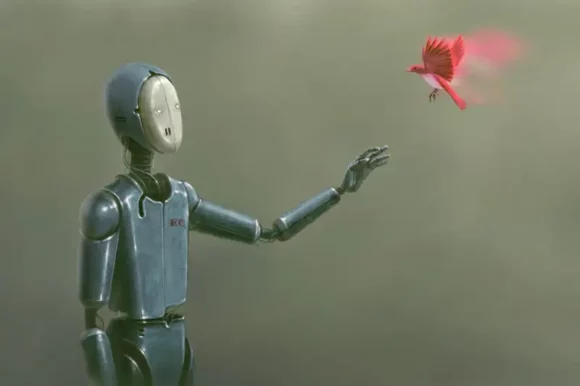Listening to Matthew de Abaitua’s The Dolittle Machine on BBC Radio 4, 25 May 2022 for New Scientist
Might we one day invent a translation device, enabling us to talk to the animals — and hear their replies? This could be good for the planet (especially if we learned to say “sorry” to all those species we’ve pushed to extinction). It would definitely be good for us, says science fiction writer Matthew de Abaitua, presenting this deceptively winsome speculation about animal languages.
No two species experience the world in the same way. If animals have language at all, then they are talking and thinking about different worlds. How then can translation progress?
Already we use machine-learning algorithms to translate foreign languages. These algorithms spot which words most commonly appear next to each other. By matching these patterns across languages, a machine can begin to translate from one language into another. The hope is that the same method can, by listening to squeaks, songs and stridulations, find common terms in the languages (if they exist) of other species.
The differences in life experience between species are huge. A loquacious bat may struggle to describe to a human what echolocation is like. A dolphin may not be able to offer a bat much insight into the experience of an animal whose every breath is the outcome of a conscious decision. A human may struggle to explain his taxes to a dolphin. But bat, dolphin and human may still be able to talk about what common experiences exist, like hunger, and danger, and family.
The Dolittle Machine is a superb distillation of a complex field. Best of all, it leaves us feeling a little less alone.

